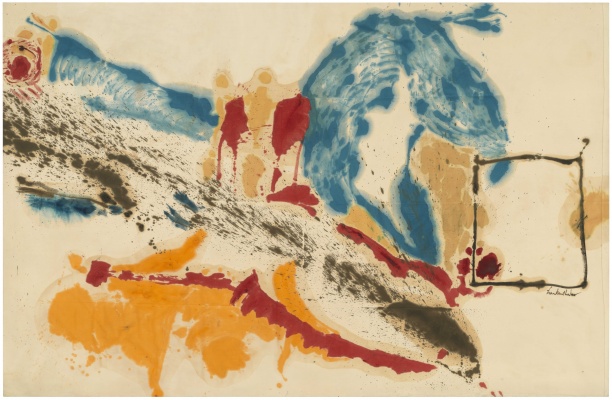Descripción de la Exposición
Fotogalleriet Oslo: September 3—October 17
Netwerk Aalst: September 11—December 19
In 1930, German film composer and author Friedrich Hollaender wrote “Wenn ich mir was wünschen dürfte,” famously performed by Marlene Dietrich. Hollaender’s old Weimar song inspires the foundation of Dora García’s exhibition If I Could Wish for Something, shown jointly at Netwerk Aalst and Fotogalleriet Oslo. Translated, the verses of the song read:
If I could wish for something
I’d feel awkward
What should I wish for,
a bad or a good time?
If I could wish for something
I’d want to be only a bit happy
because if I were too happy
I’d long for being sad
The song serves as a powerful expression of a complex concept: sadness as political strength. While this might conjure up immediate associations with Enzo Traverso’s Left Wing Melancholia, political sadness acquires an even deeper significance when it is brought into relation with women’s struggles for emancipation (a depth that is mirrored in Marlene Dietrich’s voice). The disappointment amongst women has been going on for so long. The promise made to them by the revolution (any revolution) remains hitherto unfulfilled, delayed and denied. Thus, the sadness and vulnerability rooted in this feeling of abandonment transformed into a shelter and a shield, and perhaps even a sword. In sadness we overcome the temptation of victimhood, using pain as a conduit for recognizing the suffering of others. This opens up the possibility of an ethical encounter.
Dora García asked the singer La Bruja de Texcoco, a trans woman known and celebrated for her contemporary reactivation of traditional Mexican music (adapting the lyrics—often in indigenous languages—to her own life and music experiences), to write an original song loosely inspired by “Wenn ich mir was wünschen dürfte.” In García’s new film Si pudiera desear algo (2021), La Bruja’s song functions as a soundtrack to the incredible demonstrations that appropriated and altered public space and discourse in Mexico over the past five years.
Si pudiera desear algo is shown together with the 2020 film Love with Obstacles, centered around the legacy of Alexandra Kollontai, a Russian revolutionary, sexual activist, and fiction writer, who served as ambassador in Mexico in 1926–27. Mexico and Russia are not only united within Kollontai’s biography, but also through their revolutionary histories. The Mexican (1910–20) and the Soviet revolution (1917), share their unlikelihood, their triumphs, and their defeats. Additionally, these revolutions share the failure to make good on the promise they made to women. This disappointment is now the fuel of a revolution that propagates like fire through Latin America: feminism. Women seem resolved to take their fates into their own hands, once and for all. Some concepts that Kollontai coined at the beginning of the 20th century are given new life, such as the “younger sister” (proletarian women, whose interests are not aligned with those of the bourgeois feminist) which resonates with the notion of “Third World Feminisms” that focus on issues that white feminism fails to identify with.
The legacy of Kollontai strongly shines through in other concepts, which now sound more contemporary than ever: “comradely love,” “disappearance of the compulsively isolated family", the “new woman.” Threatened by any form of dissent, the patriarchal structure of capitalism relentlessly perpetuates the gendered nuclear family as the only possible worldview to project onto our next of kin and society at large. Kollontai explored how traditional bourgeois sexual and family relations could transform once freed from the demands of property and dependence, liberating bodies from cyclically performing a given normativity. She called out the immorality of these structures, and her indignation reverberates in If I could wish for something. These reverberations echo even more explicitly in the new publication that accompanies the exhibition, which features texts by Sayak Valencia, Andrea Valdés, Hilde Methi, Agnieszka Gratza, Paloma Contreras Lomas, Carla Lamoyi, Saddie Choua and Dora García.
Dora García’s presentation of If I Could Wish for Something at Fotogalleriet Oslo and Netwerk Aalst transforms the physical space of the two art institutions into an exhibition-in-motion, a space for debate and critical thought about issues that are both local and global, and which demand a networked alliance for a new politics of love—meaning, simply, other ways of living together.
In this regard, the words of La Bruja de Texcoco sound especially inspiring: “femininity is the possibility to become a composer [of time, we would add] instead of remaining an interpreter.”
About Dora García
Dora García is an artist, teacher and researcher who draws on interactivity and performance in her work, using the exhibition as a platform to investigate the relationship between artwork, audience, and place. She has participated in numerous international art exhibitions, including Münster Sculpture Projects (2007), the Venice Biennial (2011, 2013, 2015), the Sydney Biennial (2008), the São Paulo Biennial (2010), dOCUMENTA 13 (2012) and the Gwangju Biennial (2016). Recently, she participated in osloBiennalen (as part of the collective Rose Hammer), Art Encounters Timisoara (Romania), and AICHI Triennale, Japan. García lives in Oslo.
About Fotogalleriet and Netwerk Aalst
Fotogalleriet is a publicly funded foundation located in the center of Oslo and the oldest institution for photography as a critical art practice in the Nordic region. Founded in 1977 by—among others—renowned artists Dag Alveng and Tom Sandberg for hothousing cutting-edge photographic practices, Fotogalleriet has since been dedicated to exhibiting local and international art practices, and analysing the rapidly expanding nature of a field unrestricted by technological and aesthetic shifts. Through its commitment to research and engagement with artists, Fotogalleriet is a leading institution within the field of image making. The Norwegian Royal Ministry of Culture provides Fotogalleriet’s principal operating support; additional operational funding comes from the Norwegian Photographic Fund (Nofofo), and in part, from the Oslo Municipality.
Netwerk Aalst is an open house, an international centre for contemporary art, and an independent cinema located in Aalst, Belgium. The exhibition If I Could Wish for Something is part of The Astronaut Metaphor, an evolving programme on politics, aesthetics and the human. What is the position and role that artists, writers, thinkers and institutions and their responsive practices can take up within a complex public sphere? With this programme, devised as a series of long-term commissions, Netwerk Aalst wishes to understand what an integral support for artists can entail, how we can rethink the institution departing from the needs and wishes of artistic practices holding the here and now of Aalst as its compass. Netwerk Aalst is supported by Flanders State of the Art, the Flanders Audiovisual Fund and the City of Aalst.
If I Could Wish for Something is curated by Antonio Cataldo (Artistic Director Fotogalleriet), Piet Mertens (Curator Netwerk Aalst) and Pieternel Vermoortel (Artistic Director Netwerk Aalst).

Exposición. 11 sep de 2021 - 19 dic de 2021 / Netwerk Aalst / Aalst, Oost-Vlaanderen, Bélgica

Exposición. 11 abr de 2025 - 28 sep de 2025 / Museo Guggenheim Bilbao / Bilbao, Vizcaya, España

Formación. 08 may de 2025 - 17 may de 2025 / Museo Nacional Centro de Arte Reina Sofía (MNCARS) / Madrid, España